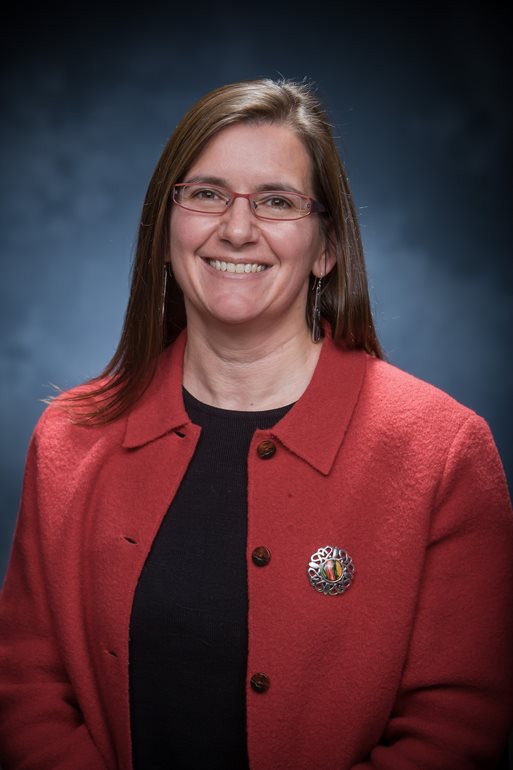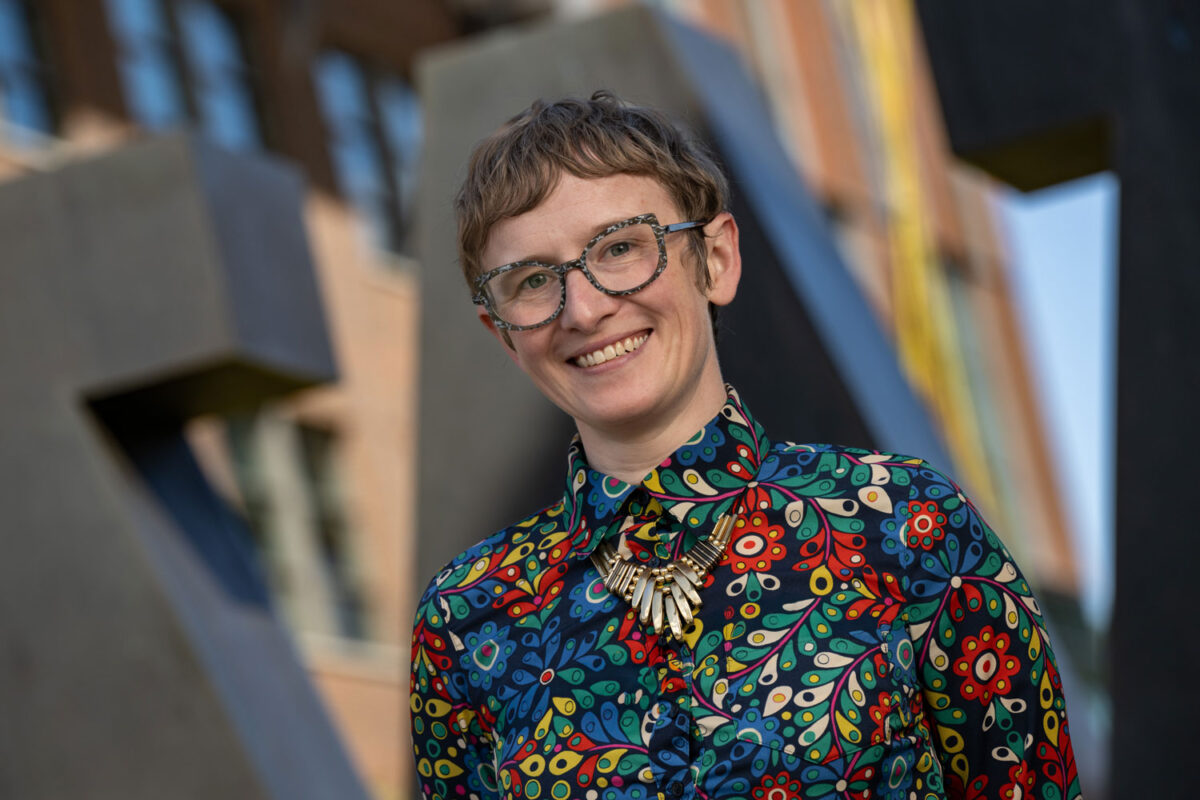
By N.L. Sweeney
To get back to work, back to school, back to a near-normal, everyone looking at a chart of COVID-19 cases wants to flatten the curve.
Jamie Shirley, senior lecturer and director of nursing in UW Bothell’s School of Nursing & Health Studies, is exploring the important questions of what happens if the curve doesn’t flatten.
Beyond her work as an educator, Shirley serves as chief of the Ethics Consultation Service at the University of Washington Medical Center Northwest. In this role, she is part of a team working to understand how care and resources will be allocated if COVID-19 cases exceed hospital resources.
“While we were lucky during the first wave of the pandemic that we did not need to use a triage process,” said Shirley, “having this conversation while we are still in a contingency stage helps us to be prepared should we reach a crisis.”
Faculty in community

For Shirley, this coronavirus pandemic is not the first time she has served in an ethics role off campus.
“As a clinical ethics consultant, I work all the time with clinicians, patients and families when there is uncertainty or conflict in health decision-making,” she said. “Whether that is between clinicians or between clinician and patient, my job is to clarify values and help find a resolution that aligns with those values.”
In the current context, that has meant designing a triage model for how medical centers should prioritize care during the pandemic. This algorithm factors in issues like severity of condition, age and pertinent pre-existing disease to determine who should receive scarce medical resources.
The goal is to create a fair and equitable system of distribution when there are not enough resources for everyone who needs them. Applying the algorithm to real people, however, has its own set of ethical complications.
“Implementing triage in a pandemic is not the same as in a war zone or natural disaster,” said Shirley. “Treatment of COVID-19 requires a commitment to a longer treatment course and raises thorny social questions about the systemic determinants of health that expose some populations to greater risk and greater susceptibility.
“How can we — and should we — account for those in a triage process?”
Questions of access
Shirley believes that the goal for creating the best possible triage should not center around equality but rather on equity. This is especially important because Black and Latinx Americans are statistically more likely to be affected by COVID-19.
“Classically, we approach these triage systems from a utilitarian perspective, and we consider this a rational system of treating every person the same,” said Shirley. “But that approach doesn’t acknowledge the irrational system of disparities in which the algorithm operates.”
An unbiased algorithm cannot exist in a system which is already unfair, she explained. Co-morbidities, or pre-existing conditions, are one of the most important factors for considering who in a crisis would receive care. And the reality is that racial minorities tend to be among the groups most affected by these co-morbidities due to a variety of factors linked to systemic oppression.
“We classically argue that screening out social issues and social judgments provides an algorithm that supports the values of equity and justice,” said Shirley. “Unfortunately, they may instead reinforce the health issues exacerbated by occupational hazards, housing conditions, access to transportation, childcare and insurance.
“Our goal,” she said, “is to find a system that doesn’t ignore these disparities.”
Ethics matter
Shirley’s clinical ethics work informs her research and teaching at UW Bothell, where she explores concepts of autonomy and dependency, and how social inequities inform these differences.
Her passion is passing these inquiries on to her students at both the graduate and undergraduate levels.
“My goal in my ethics classes is teaching students how to have these difficult conversations about inequities and examine what is at stake for those who are systemically oppressed,” said Shirley. “More than just imparting the content and theory, I want to give students the skills and the language to engage in these conversations so that our future health experts can be a part of the change that needs to happen.”



